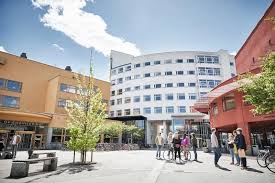Global environmental problems such as climate change, loss of biodiversity, and increasing pollution add to existing problems with social inequalities and injustices. It is high time to reverse the current trend.
To create sustainable societies and social change, we use applied research based on close cooperation between the academic world and society. The programme is interdisciplinary and focuses on cross-cultural, comparative research, and long-term social change. You will learn about various theoretical perspectives of sustainability, get experience in data collection and analysis as well as develop practical skills and experiences in planning and working for sustainable societies and social change.
The programme provides a set of social science methods and tools for designing and applying solutions in real life situations, within the framework of sustainable development goalsc, by looking into recent changes and trends in different regions of the world. Academics and practitioners will use lectures, case studies, group work, and exercises to strike a balance between theory and practice and to stimulate interaction between participants.
The emphasis is on issues of sustainable development and social change that cut across different countries and world regions, and how these issues are applied in local settings. Examples are globalization, social justice, equality, diversity, human rights, environmental challenges, climate change, and urban and rural development.
As a part of the master thesis work you will start up a collaboration with a host organisation of your own choice within the non-profit, public, or corporate sector. With the support of a supervisor you will during the Research planning course develop and formulate a plan for the project, which will result in a thesis.
The programme is offered as a 1-year (60 credits) and 2-year (120 credits) programme. The latter is an extension of the former, which means that all students study together during the first year.


